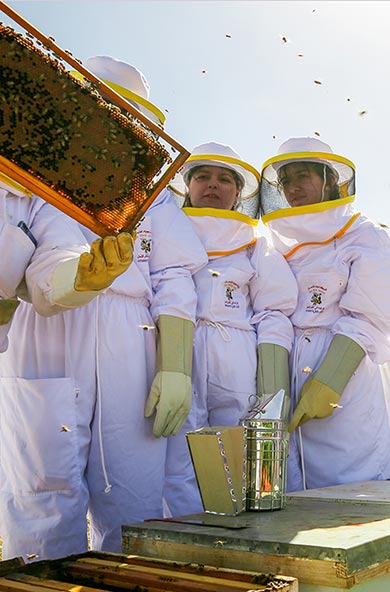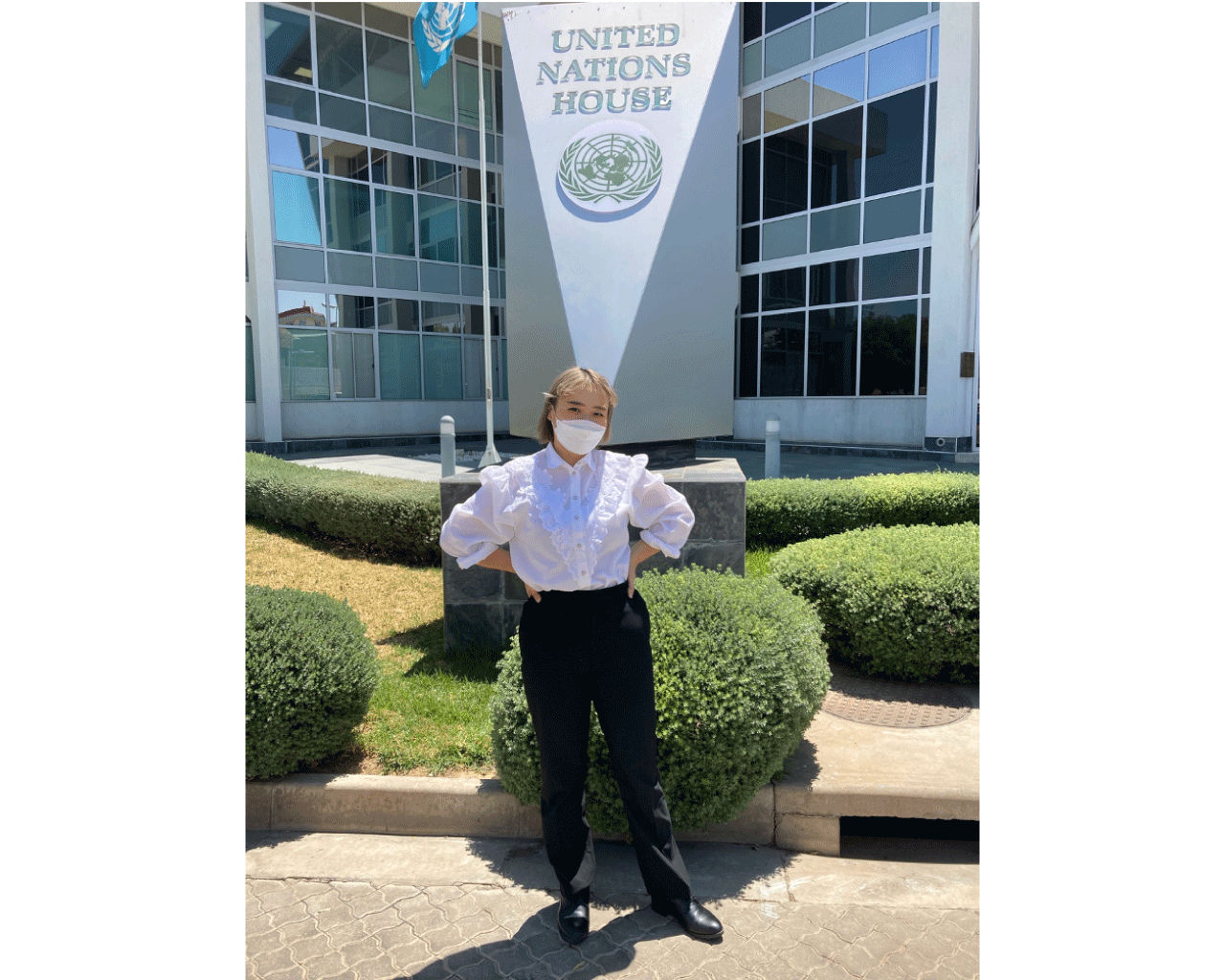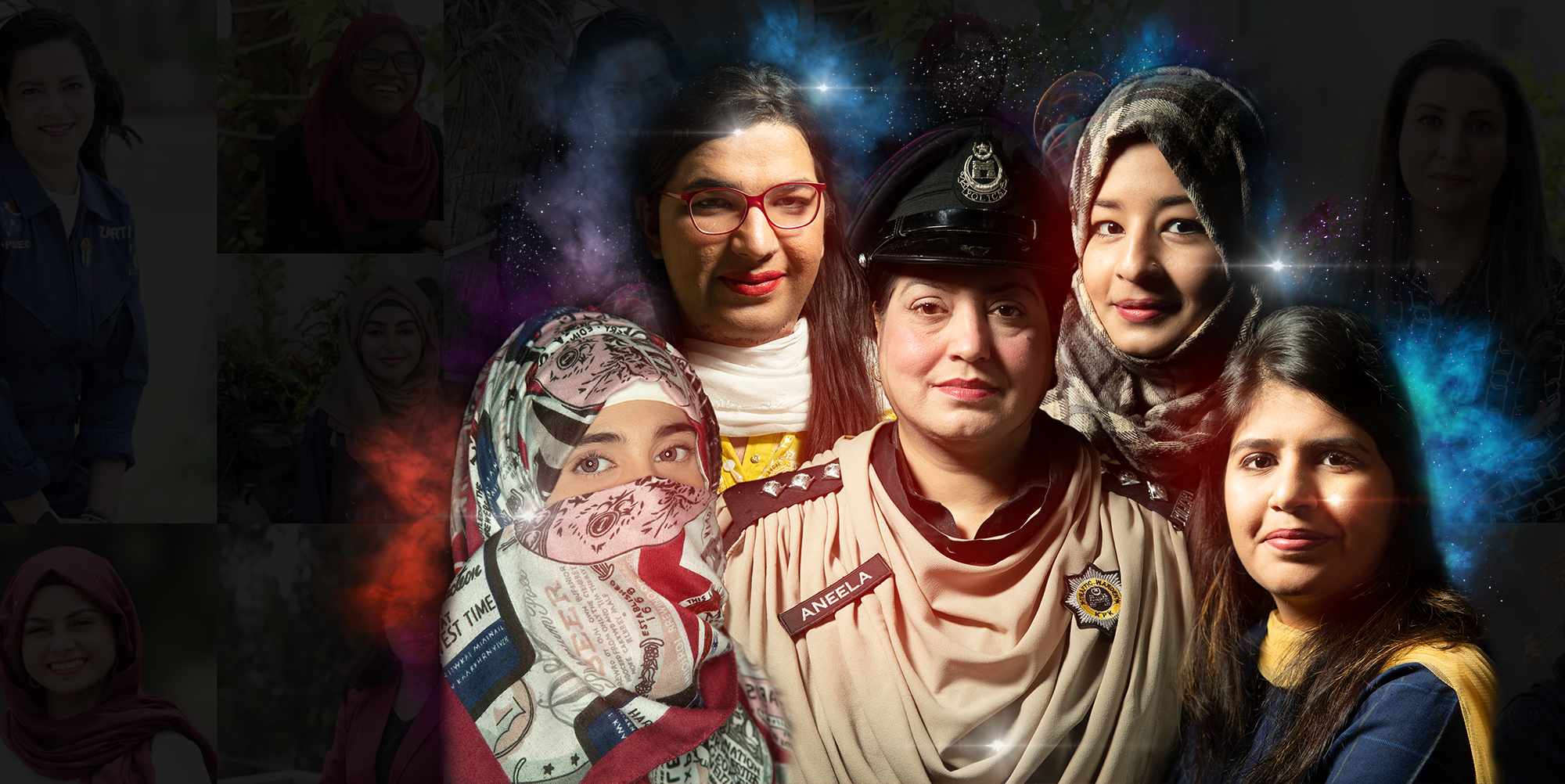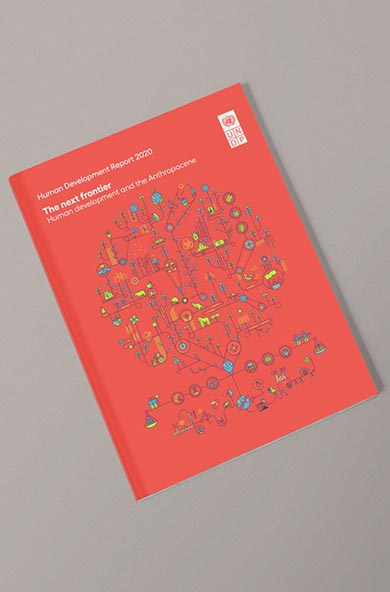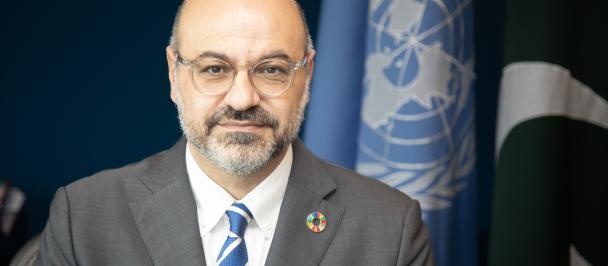by Javeria Masood – Head of Solutions Mapping, UNDP Pakistan
DigitAll: What happens when women of Pakistan get access to digital and tech tools? A lot!
March 17, 2023
The world as we know it has been and is rapidly changing. Technology has proven to be one of the biggest enablers of change. There has been a significant emphasis on digital trainings, tech education, and freelancing in the last several years especially during the pandemic, through initiatives from the government, private and development sectors.
Covid-19 acted as a big disrupter and accelerated the digital uptake many folds. In Pakistan, we saw the highest number of digital wallets, online services, internet-based services and adaptability out of need and demand.
Kepios analysis indicates that internet users in Pakistan increased by 22 million (+35.9 percent) between 2021 and 2022. Meanwhile, GSMA Intelligence’s numbers indicate that mobile connections in Pakistan were equivalent to 82.2 percent of the total population in January 2022. While the technology and internet footprint has increased significantly, Pakistan’s overall internet penetration is still below 40%.
This divide is even bigger from the gender lens. There are households where men have mobile phones, that women can use but not carry personally. There are limitations of access and use that limits them from accessing information and opportunities.
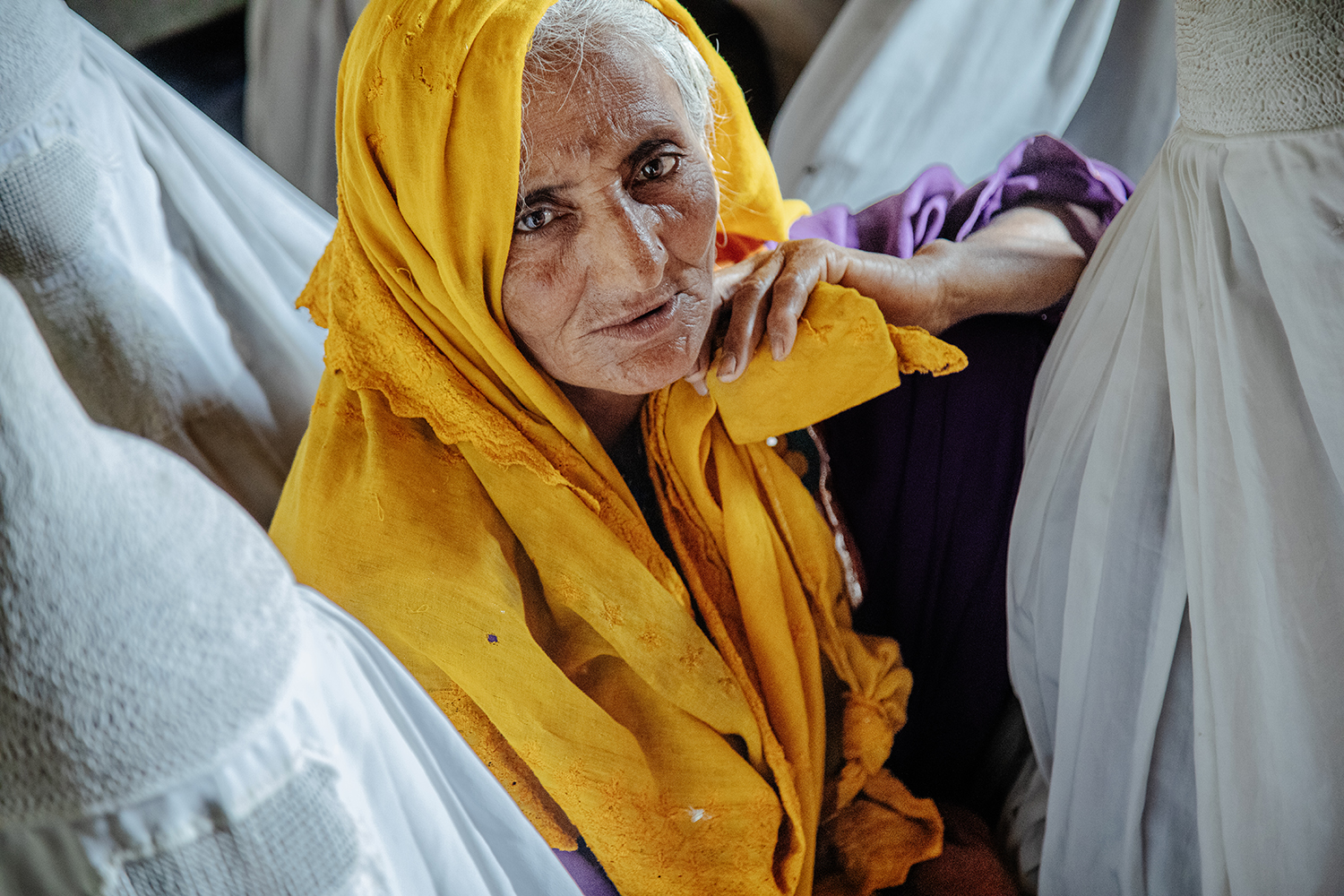
We recently visited South Punjab to explore the digital landscape through ethnographic research. The three aspects we intended to explore were:
- Mobile phone and internet penetration through a cultural and behavioural lens: what limits and facilitates women with better access and how does this impact their lives?
- Decision-making and available opportunities: what are possible economic avenues available to women once access is provided and how do they leverage these?
- Impact and influence of digital tools at a community level: what differences emerge because of access to digital tools made available to women vs being limited to men and how does that contribute at the community level?
We covered 11 areas of the underdeveloped South Punjab area, also known as the Siraiki Belt. We explored three districts: Rajhanpur, Muzafargarh and Dera Ghazi Khan. The listening was done through consultation sessions, community visits and bilateral interviews.
Here are some key insights from the field:
1. Women think at a community level and prompt behaviour change
Samina, from Muzafarghar, is taking training to start a livestock business. She wants to become an example of economic empowerment and plans to include other women and young girls in her livestock business.
‘People taunt me that I have no one to take care of me and my three daughters are a liability. I want to educate and empower them. I am working toward making a world where all girls are as accepted, empowered and enabled as the boys of my area’.
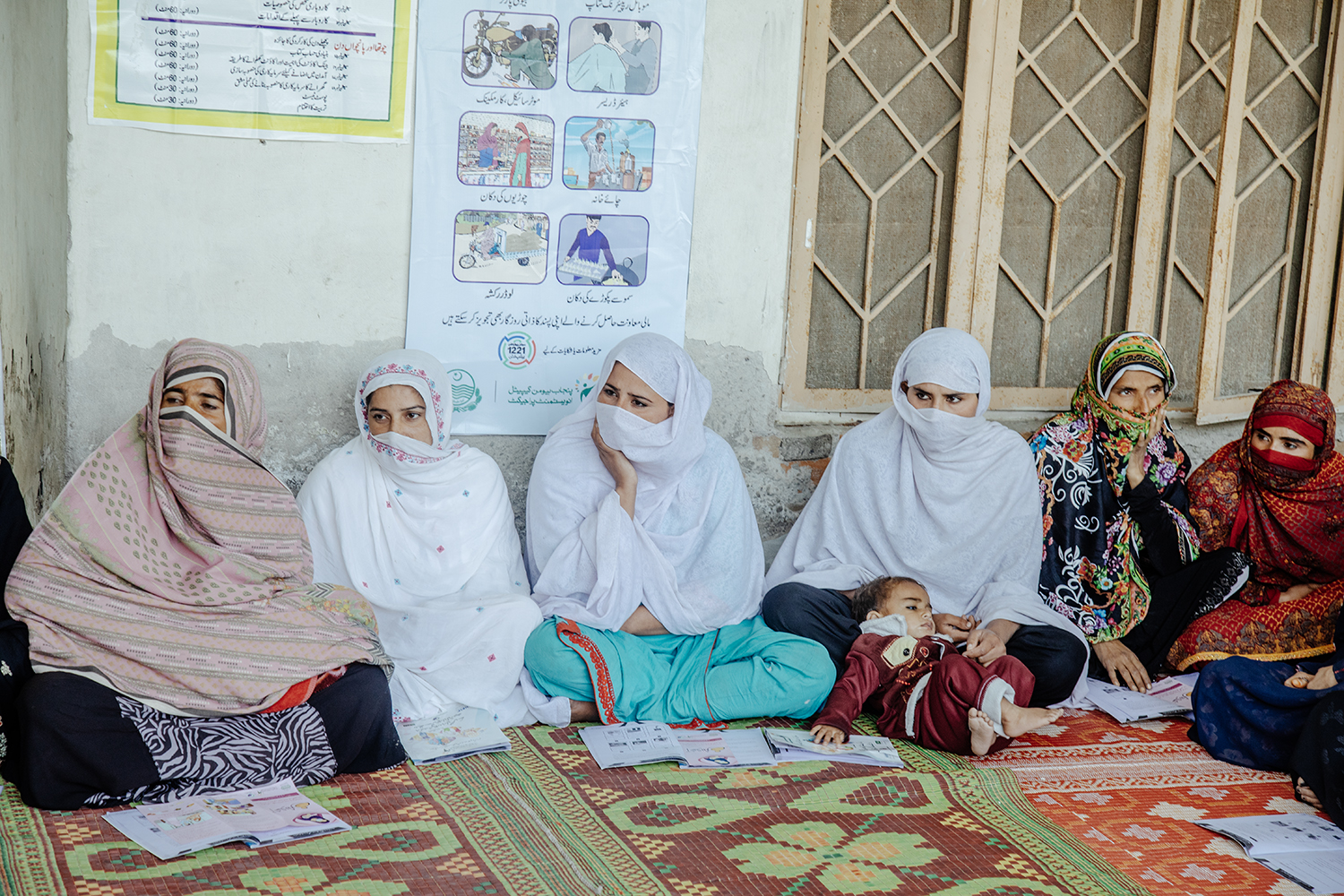
2. Women understand climate vulnerabilities, are more responsible in the management of resources and are strong in face of adversities
Recent floods have left a devastating and lasting impact in South Punjab. It has damaged houses, fields, and livestock at a magnitude greater than in previous years. Samina shared her story with us. The initial weather warning did not convey the scale of the threat and thus did not encourage people to move. Once the flood was underway, she used her husband’s phone to raise awareness for herself and other households in the neighbourhood.
‘We stock dry food and frugally consume it throughout the year. In addition to the loss of our crops on the field, if our stored food was also damaged due to the floods, we would have died of hunger. I made my neighbours aware in time and we moved our food and resources at different heights and directions numerous times to avoid the flood water. Access to information helped me in making informed decisions.’
3. Access impacts behaviour and reduces gender inequality
Shumaila Ashraf (UC Sikhaniwala) took a course for ladies' parlour services in 2015 to economically empower herself but wasn't successful. In 2022, digital literacy enabled her to learn new techniques and meet the demands of her clients. Her business is now flourishing. She is seen as an example to follow for self-improvement and the economic upscaling of a household.
‘I didn’t know how to use a mobile phone very well. Once I learnt, it was a struggle to get access to it as the men in my family did not let me. My husband now shares his phone with me; he sees the value it brings. I am used to using the internet now, and watch videos to build and capitalize my skills. I will be able to save enough money so we can send our daughter to schools as well.’
We also met numerous women skilled in crafts that all have the potential to become businesses. Limited finances force people to make unfair choices and prioritize their sons over daughters. The systemic injustice toward women requires multifactorial solutions and access is proving to be a strong factor.
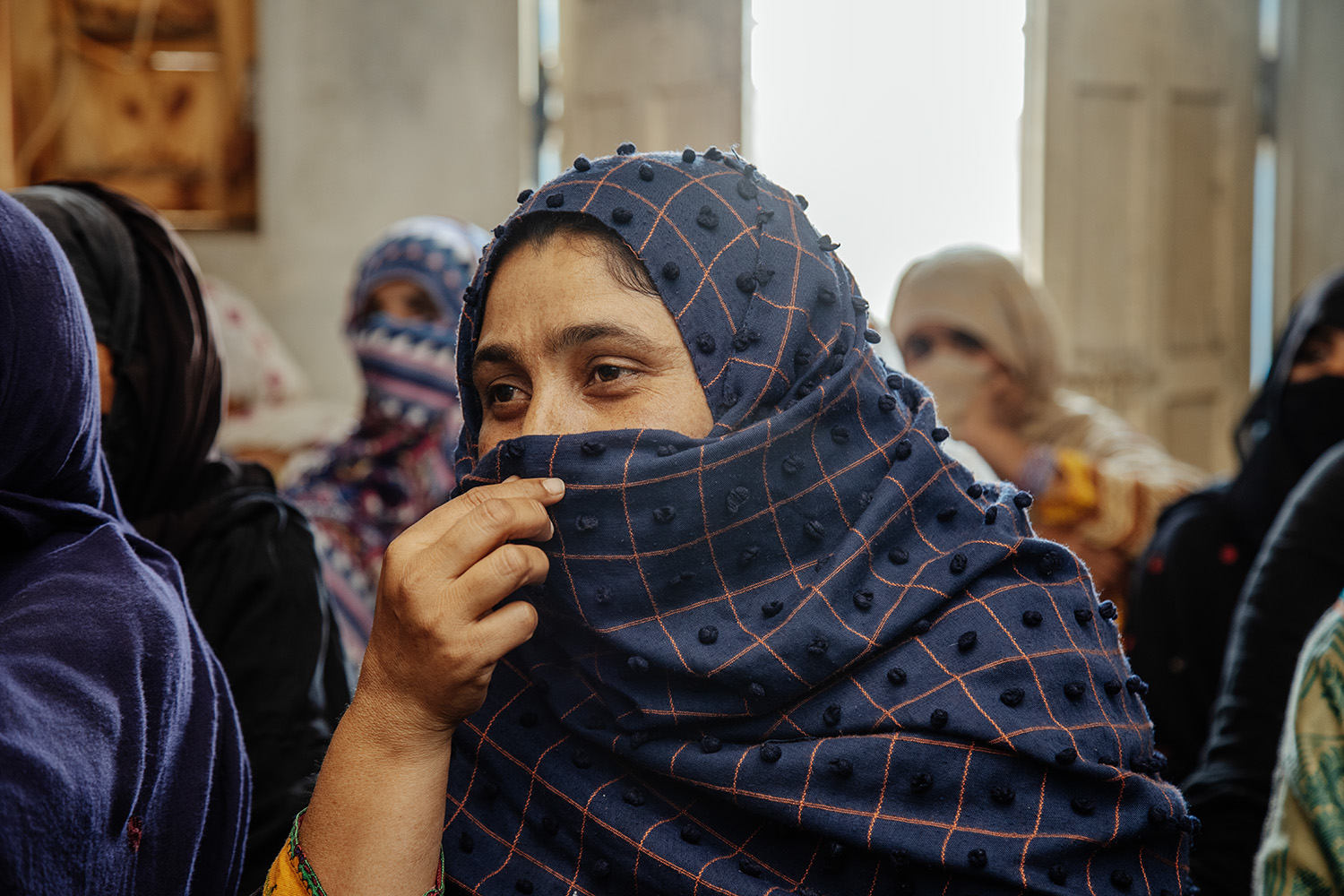
4. Solutions are as good a connector as the communal problem
Take the example of healthcare. During the pandemic, we saw the case of herd immunity. Women in Dera Ghazi Khan are using this approach for other health concerns by self-help. Mujahida Perveen from UC Pega got diagnosed with Thyroid disease. She has found information on YouTube to manage her concerns and is educating others to take their symptoms seriously, get tested and adopt healthy choices.
‘I searched on YouTube about what a thyroid patient should do. I followed the recommended food intake and exercises and see a huge improvement.’
5. Local access does not limit global opportunities
Including women in the workforce has a strategic advantage at both a community and country scale. This perpetuates the flow of money and opportunities. Ayesha Abushakoor from Zawar Wala is a Quran teacher who has students within and outside the country and uses Digital Wallets to receive her fees.
‘My brother informed me that I can use the internet to provide Quran tuition to children. Now I have students here as well as in Dubai and Saudi Arabia.’
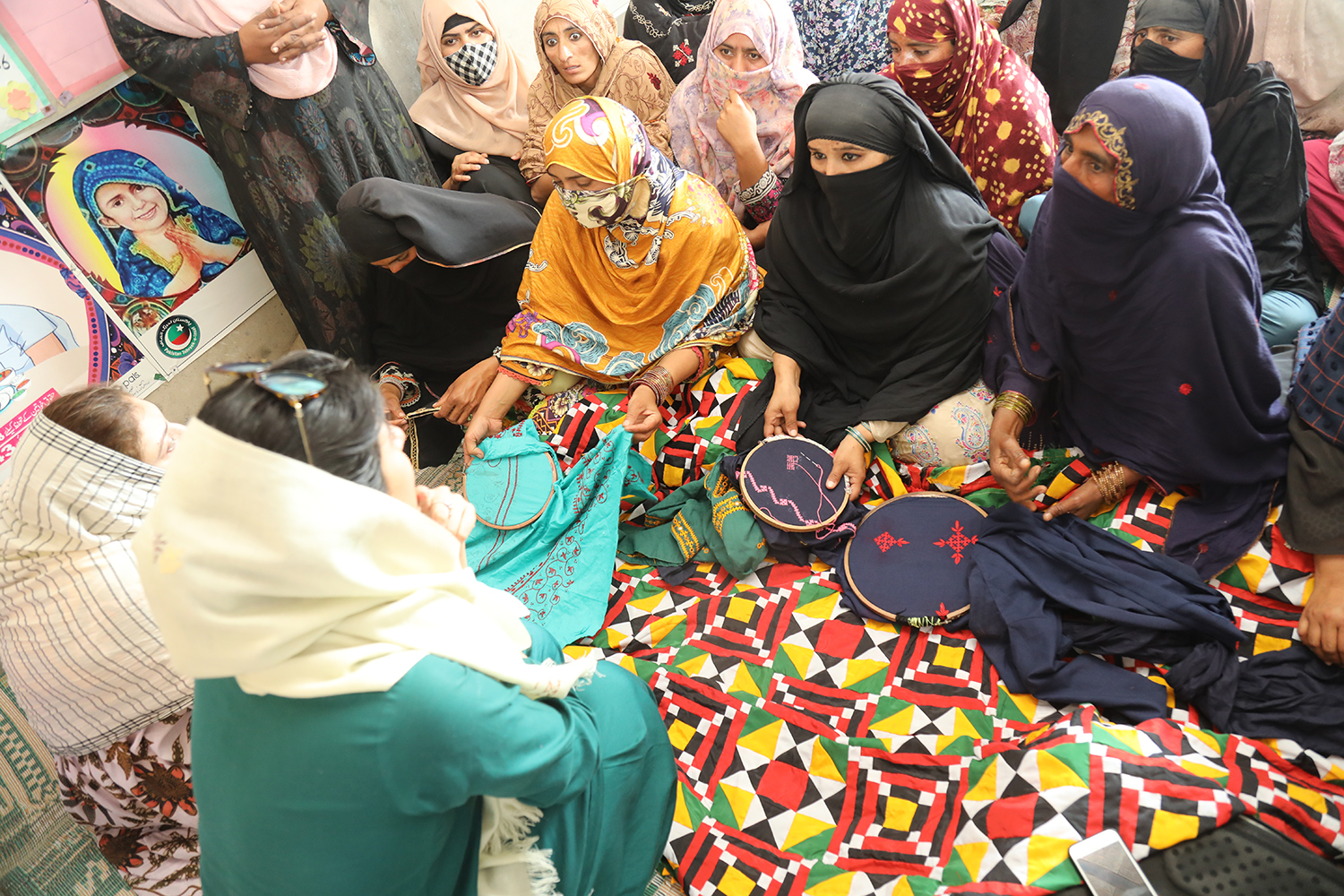
6. Future is supportive men
Ramla’s fathers an outlier in the community. He has four daughters whom he plans on educating, so they can get jobs and improve their lives. Unlike other men in the neighbourhood, he believes in equality and does not conform his daughters to discriminatory societal standards. Women in his family have access to mobile phones and the internet for recreation and education. His eldest daughter, Ramla, is in grade four and is passionate about studying.
‘My father has promised me that he will support me in getting a Master’s degree. During Covid-19, I took pictures of the syllabus made by my teacher and studied it on my father’s phone. He also makes the best biryani (Pakistan’s favourite rice dish)!’
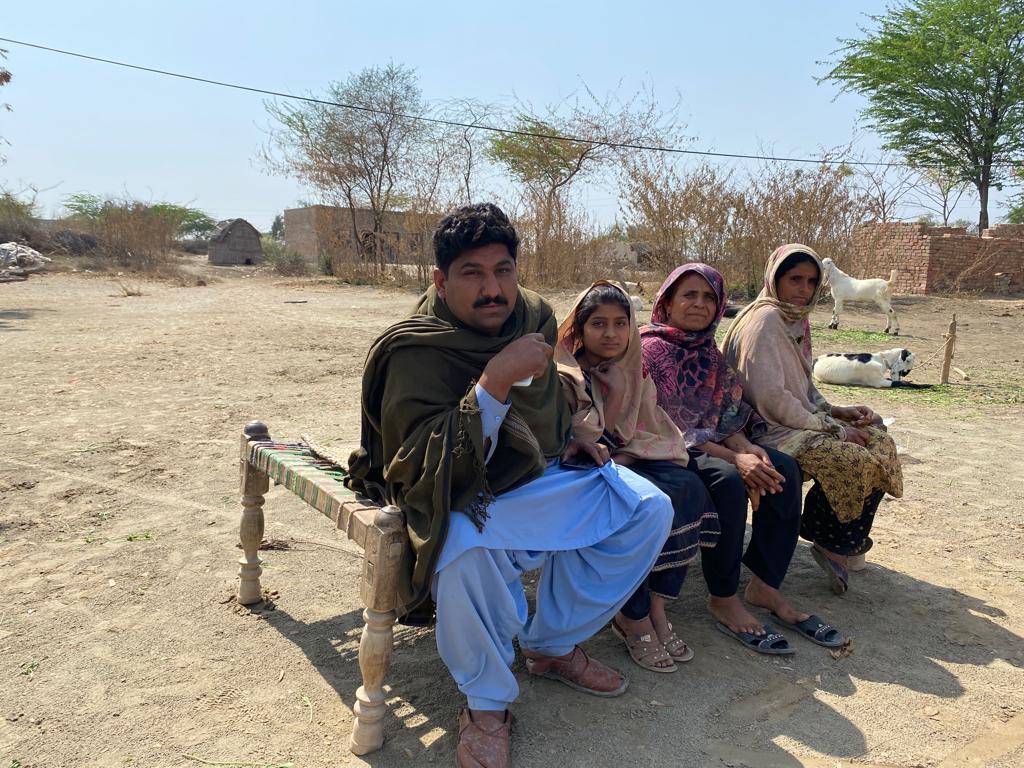
What happens when the society stops putting barriers on women and provides them with access to technology and digital tools? They thrive.
They educate, empower, and enable themselves to empower others. All the women, who shared their stories, had one thing in common. They all thought of financial empowerment as a mechanism to upscale not just themselves, and their immediate families but the whole community. Their thinking and conversations are about long-term societal change.
Innovation and technology do not have a gender and it should not be gender biased in availability. We need to develop infrastructure, policies, and a climate toward an equitable digital future for all.
***
Author: Javeria Masood
Javeria Masood is Head of Solutions Mapping at UNDP Pakistan.
You can follow her on Twitter @javeria_mh
Edited by: Ayesha Babar, Communications Analyst & Head of Communications Unit, UNDP Pakistan
Author’s note:
The findings from the research are being used to inform the new gender program and the gender strategy at the county office, by relying heavily on the voices of the communities across Pakistan.
The mission was accompanied by Gender Specialist Syeda Memoona Zeb and Communications Officer Shuja Hakim. A special thanks to NRSP for their kind support in coordinating and facilitating the visits and consultations, their work with rural women is greatly appreciated.

 Locations
Locations


